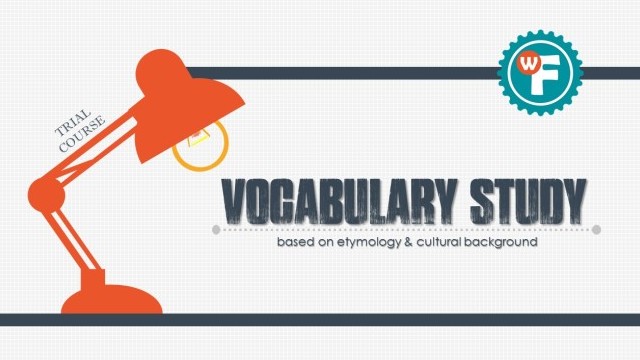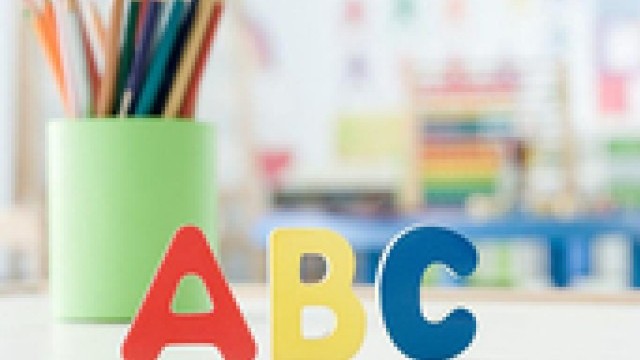英语中的外来词(法语篇)
作者:沪江英语
2018-10-13 10:37
In some ways, English, French and German are almost like three brothers and sisters that grew up together. Each language influenced the other two languages in some ways, but one of the biggest influences on English was French.
从某种意义上来说,英语、法语和德语像共同成长的兄弟姐妹一样。每种语言都在某种程度上影响了其他两种语言。但影响英语最大的是法语。
In fact, from the 9th century until the 14th century, a form of French was even the “official” language in the courts of England! During those years, the common (non-royal) people spoke an older form of English, while the kings, queens and members of the court spoke French. And to make it more confusing, most documents were written in Latin.
事实上,从9世纪到14世纪,法语甚至是英国宫廷的官方语言!这期间,平民(非王室成员)说古英语,而国王、王后和宫廷成员说法语。而且更令人不解的是,大多数的文件是由拉丁文书写的。
As you can imagine, there was a lot of mixing between those languages. So let’s look at some interesting English words that still “look French.”
你可以想象的到,这些语言之间产生了许多混合。所以我们来看看这些“看起来法式”的趣味英语单词。
One more note: Be sure to listen to the pronunciations for these originally-French words. Many are probably said differently than you might expect!
要注意:听清楚这些源自法语的词汇发音。许多或许和你想象中的不太一样。
1. Ballet
芭蕾
This is a form of dance that is popular throughout much of the world. Because this dancing style developed in France, many of the words that people use to talk about ballet also come from French. Non-ballet dancers would probably only know the words “ballerina” and “tutu” from that list, though.
这是一种在世界大部分地区很流行的舞蹈。因为这种舞蹈在法国发展起来,人们用来谈论芭蕾的许多词也来自法语。非芭蕾舞者或许只知道“芭蕾舞女演员”和“芭蕾舞裙”这些词。
It’s important to note how the word “ballet” is pronounced. Here you don’t pronounce the “t” at the end. Instead, the second syllable should sound like “lay,” with the same vowel sound as the letter “a.”
注意芭蕾是如何发音的很重要。末尾的t不发音,相反的,第二个音节的发音应该和lay相似,和字母a的发音相同。
That’s an interesting thing about some of these French loanwords: Some are pronounced like an English word, but others are pronounced more like in French.
一些法语外来词很有意思:有些的发音像英语,而另一些发音更像法语。
Here are a few other examples of French loanwords that end in “-et” but are pronounced like an “a” at the end: “buffet,” “gourmet,” “filet,” “chalet” and even the car company “Chevrolet.”
还有一些其他的法语外来词以-et结尾,但是发音像字母a,例如buffet(自助餐),gourmet(美食家),filet(肉片)和chalet(小木屋),还有汽车公司Chevrolet(雪佛兰)。
例句:
My niece and nephew are in ballet class, so I watched their 5-hour ballet performance on Saturday. It was pretty long.
我的侄子和侄女在上芭蕾课,所以我周六看了他们五小时的芭蕾表演,真的很长。
2. Café
咖啡馆,小餐馆
In English, this is the name for a small, usually informal restaurant. It often has small tables, and sometimes there are also tables outside. It is written both with the accent mark (“café”) and without it (“cafe”) in English.
在英语中,这是小餐馆的称呼,通常是不太正式的餐厅。餐馆里有小桌子,有时候外面也会有些桌子。在英语中书写的时候可以加重音符,café,也可以不加重音符cafe。
“Cafe” comes from the French word for “coffee,” but it’s also very similar to other words related to coffee in many other languages. Usually, cafes do serve coffee. But if a place only serves coffee (and not any food), then it’s normally called a “coffee shop.”
cafe源于法语单词咖啡coffee,但和许多其他语言中与咖啡相关的词类似。通常,小餐馆确实提供咖啡。但如果一个地方只提供咖啡,没有任何食物,那通常会被称为咖啡馆。
Also note that there’s a similar word, “cafeteria,” that causes some confusion. Generally, a cafeteria is like a small restaurant that is for a specific group of people. You’ll often find cafeterias at schools or large companies. In those cases, the cafeterias are for the people who study or work in the building.
还要注意有一个相似的词语,cafeteria(自助餐厅),这引起了一些混淆。通常来说,自助餐厅像是针对特定人群的小餐厅。你可以在学校或大公司找到自助餐厅。这些情况下,自助餐厅是针对那些在此处学习或工作的人。
例句:
I’ve only got about 20 minutes for lunch, so I’ll just stop at a cafe for a quick sandwich.
我只有20分钟吃午餐,所以我在小餐馆很快吃个三明治就好了。
3. Croissant
羊角面包
Some of the most common (and best!) loanwords are related to food. That’s because many foods are closely connected to a particular culture, and other languages often don’t always have words for foods from other cultures.
一些最常见(而且最好)的外来词都是和食物有关。那是因为许多种类的食物会和某种特定的文化紧密相连,而其他语言通常无法一直有特定的词汇可以描述源于外国文化的食物。
A croissant is a type of pastry or bread that is light and flaky. “Flaky” means the croissant leaves lots of little crumbs on your plate when you eat it.
羊角面包是一种轻软易碎的点心或面包。Flaky表示吃羊角面包时会残留许多碎屑在盘子里。
A similar type of bread in English is a “crescent roll.” “Roll” is the name of a small piece of bread.
在英语中相似的面包种类是新月形面包。Roll是小面包的称呼。
例句:
Tina really loves to make croissants because they taste better than other types of bread.
缇娜真的喜欢制作羊角面包,因为它们尝起来比其他种类的面包更好。
4. Entrepreneur
企业家
This is definitely a word that you should hear pronounced, since it can be a little tricky even for native English speakers.
这肯定是一个你应该听清楚发音的词,因为对母语是英语的人来说,这个词的发音有点难。
An entrepreneur is a person who starts their own company. Other common forms of the word include “entrepreneurship” (a noun) or “entrepreneurial” (an adjective).
企业家是一个自己开创的人。这个词其他常见的形式包括“企业家精神”(名词)或“企业家的”(形容词)。
例句:
Elon Musk, the man who started SpaceX and Tesla Motors, is one of the most famous entrepreneurs in the world.
埃隆•马斯克,SpaceX和特斯拉的创始人,是世界上最著名的企业家之一。
5. Faux pas
失礼,失态
This phrase describes making a social mistake.It has several silent letters, including the “x” and the “s.”
这个短语描述的是犯了社交错误。它有几个不发音的字母,包括x和s。
If you make a faux pas, then the mistake usually isn’t very big and doesn’t hurt anyone physically, but it can make people uncomfortable.
如果你失礼了,那这个错误通常不大,而且不会伤害到别人的身体,但是会让人们觉得不舒服。
例句:
I committed a pretty big faux pas last night. I kept trying to offer Maria beers, but I completely forgot that she stopped drinking alcohol three years ago!
我昨晚实在太失礼了。我一直试着给玛利亚啤酒,但我完全忘记她三年前已经戒酒了。
6. Genre
类型
In French, this word means “kind” or “style.”
在法语中,这个单词表示“种类”或“类型”。
In English, it’s used to describe a category of something, especially when talking about entertainment. You’ll especially hear people using this word to talk about books, movies and music.
在英语中,它被用来描述某一类事物,尤其是谈到娱乐活动的时候。你会听到人们用这个词来谈论书籍、电影和音乐。
例句:
Roy likes many types of music, but his favorite genre is heavy metal.
罗伊喜欢许多类型的音乐,但他最喜欢的类型是重金属乐。
7. Hors d’oeuvre
前菜
These are small bits of food that are served at special events, usually parties. They’re very similar to appetizers, but appetizers are usually served before a larger meal.
在特殊场合,通常是聚会中,会提供一些餐点零食。类似于开胃菜,但开胃菜通常在较为大型的宴席中提供。
In fact, the spelling is also very difficult. Most native English speakers generally only use it when speaking.
事实上,单词的拼写也很难。大多数的英语母语使用者通常只在说话的时候用到这个词。
例句:
We were invited to Tina and Roy’s engagement party. We expected a big meal, but there were only hors d’oeuvres. That was okay, though, since we weren’t that hungry.
我们获邀参加缇娜和罗伊的订婚宴。我们期待一顿丰盛的餐点,但只有一些前菜。不过也可以,因为我们不是很饿。
8. Lingerie
女士内衣
This is used to describe women’s underwear or sleepwear that is usually sexy or special in some way. It also has a tricky pronunciation.
用来描述女士的内衣或睡衣,某种程度上比较性感和特别。它的发音也很刁钻。
例句:
These days, before some women get married, their friends give them a “lingerie shower.” That’s when the woman’s friends all get together and give her lingerie as a wedding gift.
如今,在一些女性结婚前,她们的朋友一个内衣派对,那时朋友会聚集在一起,送给新娘一套内衣作结婚礼物。
9. Renaissance
文艺复兴
In French, this means “rebirth,” but in English it is often used to describe the historical period between 1300 and 1600 when art and science developed a lot.
在法语中,它表示重生,但是在英语中它经常用来描述14世纪到17世纪那段艺术与科学飞速发展的历史时期。
It can also be used to describe any time a person, company or country starts becoming popular again after a difficult period of time. As a funny note, some entertainment writers even described the “renaissance” of the actor Matthew McConaughey as a “Mcconaissance.”
它也可以用来描述一个人、公司或国家在一段艰难时期后重新变得受欢迎。有趣的一点是,有些娱乐记者甚至将马修•麦康纳的“复兴”称之为Mcconaissance。
例句:
I don’t know much about art, but I do know that Michelangelo and Raphael were two of the most famous artists from the Renaissance.
我对艺术了解不多,但我确实知道米开朗琪罗和拉斐尔是文艺复兴时期最著名的两个艺术家。
10. Rendezvous
约会,集合
In English, this word is used to describe either a place where people plan to meet, or the action of meeting a person at a specific time.
英语中,这个单词用来描述人们计划会面的地点,或者在特定的时间见某个人的行为。
例句:
We’re in a new city, and I’m sure you all want to explore it a bit. It’s 2:00 now, so let’s rendezvous back here at 6:00. Then we’ll go to dinner.
我们在一个新的城市,我确定你们都想去探索一下。现在是两点,六点回到这里集合,然后我们去吃晚餐。
声明:本双语文章的中文翻译系沪江英语原创内容,转载请注明出处。中文翻译仅代表译者个人观点,仅供参考。如有不妥之处,欢迎指正。











